Q&A: A Conversation About Diversity in the Celiac Community
Liz, the founder of Yeet That Wheat, shares her experiences as a Black woman with celiac disease.
Since being diagnosed with celiac disease almost four years ago, I’ve followed a lot of gluten-free content creators on Instagram. By far, one of my absolute favorites is Liz, who runs the account Yeet That Wheat. Liz has celiac disease, IBS, and GERD and uses her platform to raise awareness about celiac in the Black community and advocate for accountability, equality, and equity in gluten-free spaces.
I met Liz in person back at the Beyond Celiac Community Summit in September, where I got to hear her speak about her diagnosis journey and what she’s doing to make the celiac community a more inclusive space for all. I so admire her work and was excited to have the chance to interview her for my newsletter a couple of weeks ago.
If you aren’t already following her on Instagram, I recommend doing so—and make sure to check out all of her amazing Black History Month content, which includes a giveaway featuring products from Black-owned gluten-free brands, a fundraiser to support the nonprofit organization Color of GI, and a gluten-free town hall on Feb. 29th featuring key Black voices in the gluten-free community.
Ahead is our Q&A, where Liz shares everything from her experience of being diagnosed with celiac disease as a Black woman to why it’s essential to have diverse voices be represented in the celiac community.
Q: What did your path to celiac diagnosis look like?
A: As a child, my body was almost routinely ill at the same periods throughout my life. I have very vivid memories of when I was in elementary school—I would get sick for the same two weeks in the winter every year. And we never knew why—we thought it was some viral illness that presented as mono but wasn’t mono.
By the time I hit fifth grade, I stopped getting that kind of illness—it just disappeared. It was very bizarre. But I always had GI problems. As a baby, I was super colicky. I had gas pains. My dad tells me that when I was born, I was fed formula, and I was instantly in a lot of distress as an infant.
When I was younger, I was always scared to go to the bathroom. I would hide because it was painful. I didn’t understand that until maybe a year or two ago. I was like, “Oh, that was my body telling me something was wrong.” I just didn’t know that at the time. I didn’t have a way to express that. And my parents obviously didn’t know. They were like, “She's just a kid.”
Those kinds of things persisted throughout my teenage years and through college. When I was in my sophomore year of college, I kept getting sick. It wasn’t just like I was getting a cold. The first week, I had an ear infection and I went to urgent care. They gave me antibiotics, but then it came back—and it kept coming back. I just kept getting sick.
I was in an acapella group, and it got to the point where it was hard for me to swallow or eat or drink water because my throat was so internally swollen and it was so painful. There were abscesses in my throat, so it was really gross. And I was spiking a fever, which wouldn’t go down with normal medication. I was taking extra-strength ibuprofen, which I had leftover from having my wisdom teeth removed.
When we went to the ER, at first, they looked at my teeth and were like, “Maybe it’s related to your wisdom teeth.” And I’m like, “No, it’s very clear that it’s in my throat.” At that point, I had been doing the Google thing and trying to figure out what was wrong on my own because my PCP was like, “It’s just viral—drink some tea and take ibuprofen.” That was her approach. I found out later that she was just not a good doctor.
The people in urgent care really did want to help me, but the most they could do was prescribe antibiotics. And then when we went to the hospital—it wasn’t a random hospital, it was Brigham and Women’s in Boston—I was one of two patients there in the ER. I did not receive good medical care at all. The residents effectively ignored me. I didn’t get ibuprofen for four hours.
I was at the ER with my dad—and my dad is very phenotypically a Black man. It made me ask the question of whether they were ignoring us because we’re Black. And when I was sent away, effectively, they said, “This is not serious. We’ll give you a referral to our ENT department.” At this point, I couldn’t eat food, I couldn’t drink water. I could barely take any kind of pills to help reduce my fever.
That was really eye-opening. Not only did these doctors who were supposed to help me not care, but then also my PCP was not any better. So my mom found an ENT through Mass Eye and Ear, which is separate from Brigham and Women’s and Mass General. My ENT was one of the first doctors who I felt listened to me. At that point, he determined that I currently had tonsilitis and needed a tonsillectomy.
A few months later, he went more conservative with his approach and said we’ll keep an eye on it. But at that point, it was July, and I had had tonsillitis six times in six months. It just wasn’t getting better. All through that, I had chronic GI pain and other symptoms—but I didn’t know that that was something that wasn’t normal. That’s when I started listening to what was wrong with my body.
I went to my ob-gyn for my chronic abdominal pain, and she said, “I don’t see anything wrong. I think you should go see a GI.” That was really the first step I had taken toward finding out I had celiac. I still see my GI, and he’s really great. He had a very heads-down approach and was like, “Let’s take things off the table.”
He did a colonoscopy to rule out Chron’s and make sure I didn’t have any large intestinal problems. He also ordered an endoscopy. I had my endoscopy before I had my tTg [tissue transglutaminase] bloodwork, but it’s usually the other way around if someone suspects they have celiac disease. He ordered bloodwork after the endoscopy because he said it looked like celiac—there was a lot of inflammation.
We did the bloodwork and it came back positive, which is interesting because now there are certain studies coming out that suggest a lot of Black people have been IgA [immonoglubin A, an antibody blood protein] deficient. And people who have these kinds of recurrent sore throats and mucus problems usually have an IgA deficiency. So there are a lot of questions that I’m wondering now—like what is going on? Are these things related?
It didn’t take long from when I saw my GI to get an answer. I think it was less than a year—about 10 months—which is relatively fast. But there were a lot of factors that were involved in that. I started my process in 2019, and then COVID hit around February/March 2020. I was supposed to have an appointment in April to follow up with my doctor because we weren’t able to get any additional testing done. We were only able to get the tTg test because that’s what my insurance would approve.
My GI was like, “OK, we have these results, I want you to do a gluten-free diet and see what happens.” I was effectively in a bubble—I didn’t have to worry about going out at the time. In the beginning, I was super hyper-reactive and only ate packaged foods that were certified gluten-free, but I’ve weaned off that now. It’s really restrictive.
We retested my numbers after three months of being on a gluten-free diet. That was when I officially got my celiac diagnosis. Because my numbers cut in half. There was no way I didn’t have it because you can’t test positive if you don’t have it.
It was really interesting because I recognize that there’s a lot of privilege with being a Black person and having this diagnosis—but there are also a lot of things in my life where if I had made different choices, then I don’t know if I would’ve ever gotten diagnosed and I probably would’ve been ill for longer.
Because of the stereotypes against Black people and people of color, when it comes to getting diagnosed with something like celiac, I probably would’ve been misdiagnosed with something else and would’ve suffered a lot of other issues. In some ways, the things that I chose not to do—like, I chose to go to school in the US when I was originally planning to go to school in the UK with a study abroad program—helped me.
While I’m sad that I missed out on these experiences, I’m also glad in a way that I made these choices because I’m in much better physical shape than I was five years ago.
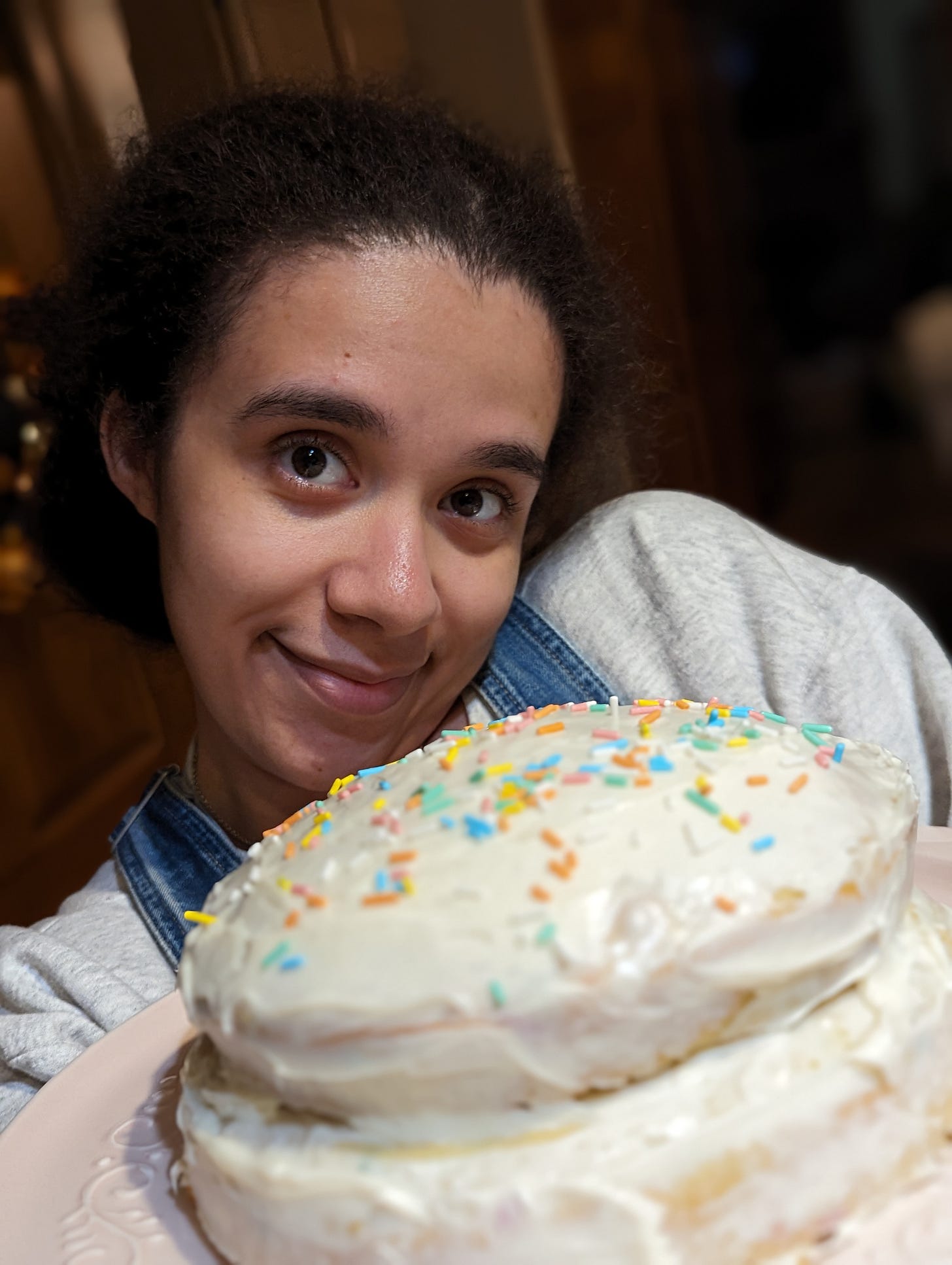
Q: Were you surprised when you learned you had celiac disease? Did you think it could’ve been a possibility at all?
A: No, I didn’t think I could have celiac disease. As of right now, nobody else in my family has it. On my dad’s side, other conditions exist mainly through my dad’s siblings’ kids. I have a cousin who has type 1 diabetes, for example, and I have other cousins and family members with similar related conditions.
Then on my mom’s side, everyone’s like, “You’re Black and you have celiac disease—but you have a white mom. So did you get it from your mom?” But no one on that side of the family has any kind of related conditions. Nobody has GI problems. The most that exists is type 2 diabetes, but that was later in life, related to weight gain, and not at all to the potential for celiac. Everyone’s like, “It’s a white disease,” and I’m like, “No, it’s not.”
It’s such a self-fulfilling prophecy because the medical community believes that celiac can only be a white disease and that you can only have it if you have European ancestors. And I think it’s also a matter of testing not being accurate for all populations. We know it’s not accurate, but then doctors want to play the game of, “Oh yeah, but you didn’t test positive on this test that was not designed for you.”
I was working in a bakery before I was diagnosed, and I had plans later in life to own a bakery because I love pastry and the technical aspect of baking. So it was a big shock. A lot of people talk about the mourning period, but I was in straight-up denial. I thought it was so funny—I even tempted the universe and was like, “Wouldn’t it be funny if I did have celiac disease? Because then I wouldn’t be able to bake, and that would suck.”
When my doctor told me to do a gluten-free diet, in my head I was like, “I’ll just do this for a little bit and it’ll be fine. I’ll get better and then I can do what I want.” I don’t think I actually realized that this doesn’t go away until maybe a year after I was diagnosed.
Q: How has it been going gluten-free? Has it gotten easier over time?
A: In the beginning, I was of the opinion that it wasn’t that deep. It wasn’t that big a deal. That was definitely the denial talking—it wasn’t anything informed. Now, I recognize the mental burden and emotional toll it takes to be gluten-free and specifically to have celiac.
It’s difficult—it’s a constantly changing journey in the sense that you can be comfortable with it, but it still takes a lot mentally and emotionally because your safety is on the line, in a sense. It can be really easy to get tired because it takes constant, frequent advocacy. And even when you do educate others, if someone makes a mistake, you’re the one who pays for it—not them. It’s not as if they intend to do something bad, it’s just that we have to remain diligent.
In terms of finding gluten-free food, I feel like I am the queen of that at this point. I have so many tips and tricks. There are some posts I’ve been meaning to make for over a year now about my favorite ways to find gluten-free food because it’s not always in the places you would expect it to be.
In terms of how my mindset has shifted, I’d say, once you get used to it, you build a tolerance. You’re comfortable with looking at labels, you do it like it’s muscle memory, and there’s no additional effort involved in that. I think the most difficult part is when you interact with other people—when your food has to go through other people. That’s when you have to be prepared. But that’s several years later, tons of research, and tons of practice.
It’s a skill that you’re constantly practicing and refreshing and improving on—and the science is always updating, so we’re always having to update as well. That’s the other part we don’t really think about—we have to learn more as science learns more. Which means our brains are always on.
I think I’ve actually been cooking more. I was at a weird point when I was diagnosed—I was on a meal plan, so I didn’t really think about cooking for myself. But now that’s pretty much all I think about. Food takes up way more of my brain capacity than it ever had. I always knew that I enjoyed food, but now I really enjoy food because it feels like it’s something more precious that I can’t take for granted, which I did before I was diagnosed.
So less “food is fuel” and more “food is sustenance”—but not sustenance in the sense that I need to have energy. It’s more like it’s emotionally satiating, which is a big deal. I think baking is the one thing that I’m still very nervous about. When you bake, you’re doing a traditional baking with flour and gluten present—and there’s a right and wrong way to do things. If you do something wrong, you can go back and do it again and follow the instructions or pay more attention to the variables.
It’s highly technical, very scientific, very chemistry-focused. Whereas when you’re doing gluten-free baking, it’s so experimental because nobody knows. There are no rules, so you have to figure them out as you go along. That’s so intimidating—and it’s also really frustrating. Even if you do try a few different things, it may not work out. That’s the disappointing part—we have an emotional stake in it, we have an investment. We want things to turn out right because there are things we’re missing.
I do think the technology is changing, which is great. But that’s one thing I do miss—I miss being able to bake things for the sake of baking things and then they turn out well.
(Above is one of Liz’s first Instagram posts from last year about racial disparities in celiac diagnosis.)
Q: When did you launch your Instagram account—and what inspired you to do it?
A: I started my account back in 2021. At first, I was really just reposting stuff from Beyond Celiac and the Celiac Disease Foundation to spread awareness. It was just an account that I used where people in my real life—roughly 100 random people that I knew/went to college with—would see what I was reposting on stories. I didn’t make any kind of feed posts, I didn’t make my own content.
At that point, it was still COVID and I wasn’t going anywhere. I’m not a tech-savvy person—I never really have been—so I’m just kind of a person who pushes a few buttons and makes things work somehow.
The reason I started it was mainly to spread awareness—but it got to the point where I was like, “I know very few people who have celiac disease in my real life.” And I knew nobody who had celiac and looked like me. That was a big thing. I saw these creators, and it was kind of frustrating because there was this lens that was over what it meant to be celiac—and I wasn’t reflected in that at all.
I knew I couldn’t be the only person who had celiac and wasn’t white. I thought to myself, “Well, if I’m not going to do anything, then I don’t know if anybody else will.” That means the rest of us continue to go unseen and hidden away from the rest of the community. It means we’re going to be isolated—and it’s already really isolating to have celiac.
People don’t really get that it’s a hidden disability. People are like, “You look fine.” And you could be suffering, you could be absolutely miserable, but nobody knows. It was a clarity moment. I didn’t want somebody else out there to be feeling the way that I was feeling when I could do something about it. And then I can demonstrate to people that celiac doesn’t look like a certain person—it can look like anybody. That’s how we then move toward patients getting adequate care.
I first launched my own content last January, so it’s been a little over a year. It was frustrating for me to try and do the research and find out where the other Black people who have celiac disease are. We’re very few and far between—literally, I know one other content creator who has celiac and is Black.
My friend Jaelyn—her handle is @authenticallyglutenfree—was diagnosed with celiac and then found out it runs in her family. She had a similar experience where she was like, “This is a joke,” and her parents were like, “This is a joke, this is not something we’re told to look out for.” We’re told to look out for diabetes, we’re told to look out for heart disease. Sometimes we’re told to look out for sickle cell. That’s it.
But food allergies are on the rise in the Black community. Arthritis is an issue, and so is kidney disease—all sorts of things we should be looking for. The same things that affect the general population affect Black people too. Even now, though, there still aren’t a lot of us, and I think that’s because people aren’t being diagnosed. There are a lot of Black people who are gluten-free—but do they know why? Not always.
It’s a bit frustrating, but I do think there have been positive steps made. I feel a lot more vindicated knowing that there’s data to support the fact that this test doesn’t work and that there probably are a lot more Black people who have this disease that just don’t know it.
Q: What types of content do you share on Instagram?
A: My content is split into two camps: There’s the educational, advocacy, and awareness content, and there’s the more lifestyle-focused content. The advocacy piece is, I’d say, the most important part to me of the content I put out there. It’s mostly graphics, little guides, on different things related to being gluten-free, having celiac disease, and managing chronic illness.
It has that intersectional lens as well. For example, the study I was referring to out of the University of Alabama about IgA deficiency being seen in a lot of Black patients and how that relates to diagnosis. I also have guides to beginner stuff, like, “What is celiac disease,” “What is gluten,” and “How do you manage a gluten-free diet.”
The way that I write my posts is with the intent that they can be shared with anybody. That’s so other people can learn about what celiac disease is because I think it’s less than 15% of the US population can name a single autoimmune disease. And there are thousands. The chances of some random person knowing what celiac is aren’t super high. But social media has been a really powerful vehicle for social change.
I make these kinds of materials available to everyday people hoping maybe they say, “Hey, I heard about this celiac thing and now I’m seeing somebody’s story. Let me read it.” I use plain language and break everything down in an easy-to-read and digest way because a lot of this stuff is also behind a knowledge wall. I don’t want someone to be scared off because they’re like, “What is this random word that I don’t know how to pronounce?”
I also like to provide guides to small businesses and different organizations people can support. For example, because it’s Black History Month, I’m going to have a guide to gluten-free Black-owned businesses. Hopefully, this sends business toward these small businesses. In May of last year, I had an AAPI guide of different Asian American Pacific Islander-owned businesses.
I’m hoping to expand that further so that people who are of these different groups who are part of our community have access to the things that help them, and so they can then participate within their culture.
That’s a big thing for me—I really want people to understand that gluten-free isn’t a burden and that it doesn’t prevent you from participating within your own culture, within your upbringing, within your history. You can still do those things, it just takes a bit of maneuvering. Once we learn how to do those things, then we can also make sure people feel normal, for lack of a better word.
My lifestyle content is more standard content videos. I post about my favorite restaurants, bakeries, and different small businesses in New England that people can go to that either have gluten-free options that are safe for celiacs or are dedicated gluten-free. That’s because I feel like the knowledge base is accumulating online but people still may not have it.
When I was first diagnosed, I made a lot of mistakes. That’s the thing—there’s a learning curve. But if you don’t have access to that education, you don’t know—like, I didn’t know that I needed to eat things that came from a dedicated fryer. So it takes the work off of other people because I already know which places are safe. If I can share that with other people, then they’ll know too. And that also then drives business so these businesses stay in business.
Occasionally, I’ll throw up a meme and hope that people find it relatable or funny. I also will put up recipes. They’re mainly things that I know work, so I’ll share them with everyone else. If other people like it, great, but if they don’t, don’t tell me. I’m trying to add in a travel component because when I was diagnosed, there was zero travel at all. So I’m learning how to travel again. Not to mention, I didn’t really travel on my own before this because I was in college.
When I was younger, I really wanted to travel—that was a big thing for me. I’ve always had my nose in a book, thinking about some far-off place. Part of that travel was food, part of that travel was history. But now a lot of it is food. I have to think about that all the time. If I can share what works for me, then that can be useful to someone else.
Q: To sum everything up, why is it important to have more diverse voices in the celiac community?
A: It’s important—that’s the big takeaway. I was talking to Matt [Weinstein, the founder of Glass of Weinstein] about this a bit recently—we were trying to come up with a little tagline or slogan that summed up what we’re talking about for Black History Month. What we landed on was, “Everybody deserves a seat at the gluten-free table.”
That’s because—and I use this comparison a lot—in 2020, there was a comparison going around that talked about equality, equity, inclusivity, and what those different terms mean.
Equality means giving everybody the same, it means everyone gets X amount of whatever. But it doesn’t recognize that everyone has different needs—and recognizing that everyone has different needs means we also have to recognize that everyone is different.
If we want to effectively whitewash an entire disease and say that the only people who can have this disease are X group of people, that means that not everyone gets what they need. If we don’t recognize everyone, as individuals who have different needs, then it means we’re catering to the middle. And that means that not everyone is going to adequately get the care they need.
I don’t think that’s fair, and morally I don’t think that’s right. Obviously, I have a stake in this, so it means more to me. So it’s about how can I convince someone else that my value matters—and that’s a difficult thing to do. But at the end of the day, I really do think we’re all human. We all are people, there are people in our lives who care about us, we all have dreams and hopes and goals—there are things we want to do.
I also would hope that most of us want to leave this world better than what we came into. And I think part of that includes recognizing that other people from different backgrounds are part of this community. That’s something I think the pharmaceutical industry is starting to move toward—they’re starting to recognize that treatment options need to work for everybody.
All photos courtesy of Liz from Yeet That Wheat



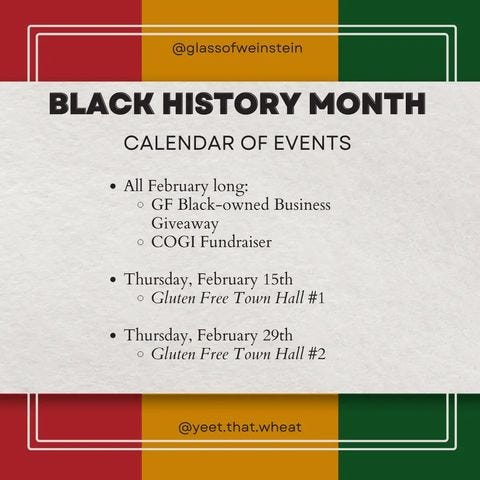
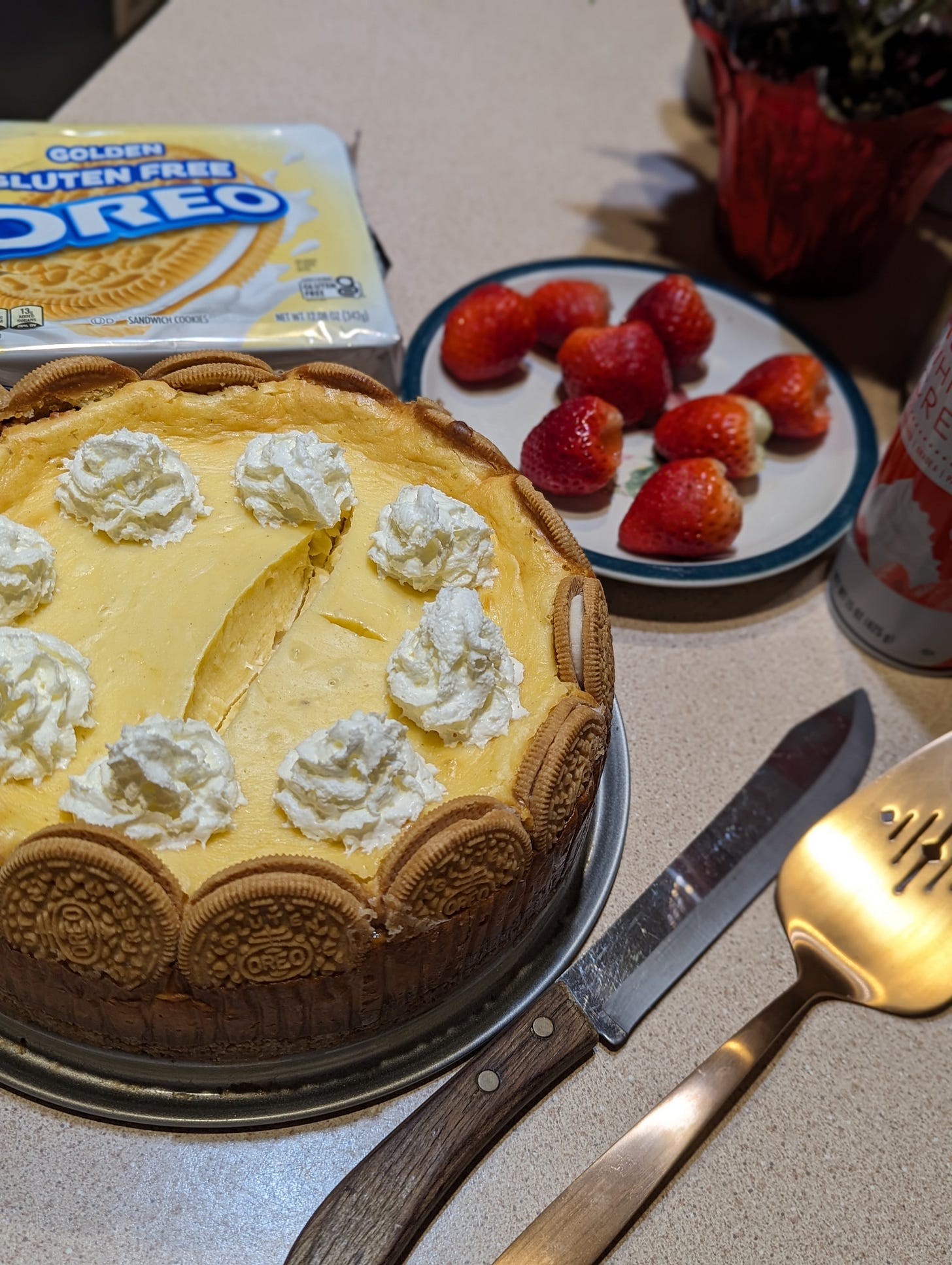
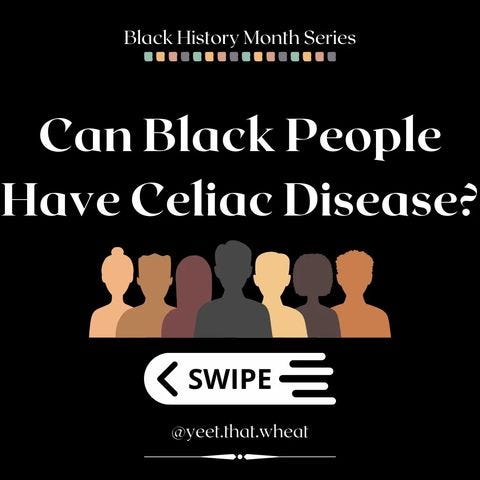
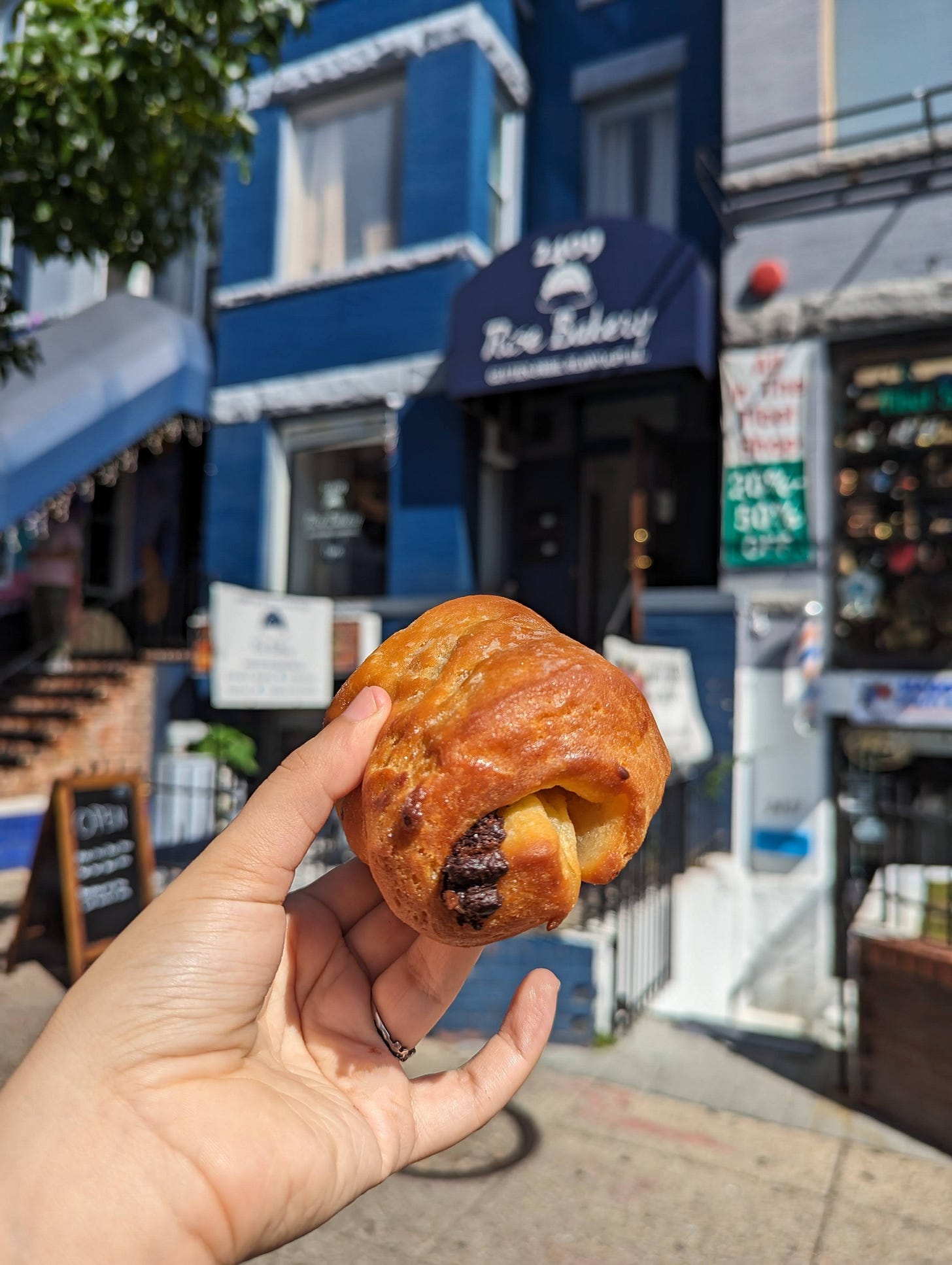
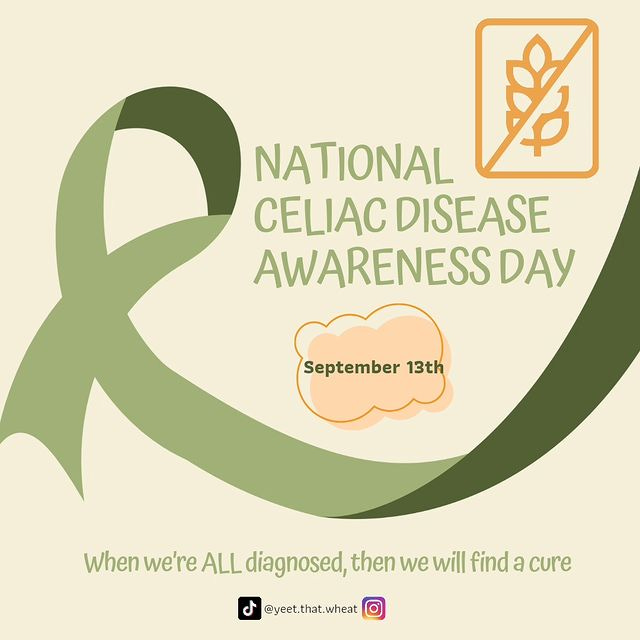
Great interview and highly informative.
Great Interview. What a struggle Liz went through to get a final diagnosis.